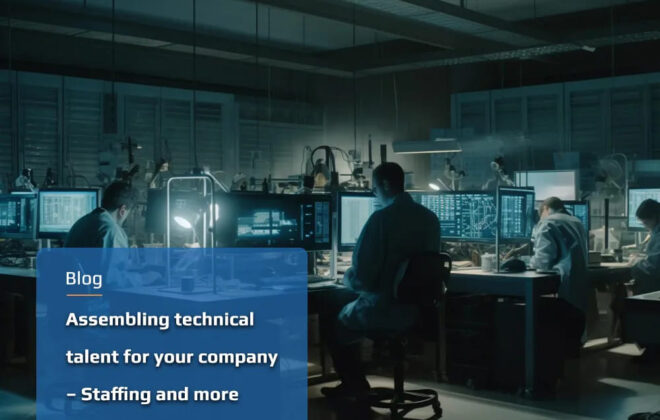
10 Major Characteristics of Staffing: A Complete Discussion

Introduction
In the 21st century, getting the right people into the right jobs is important for businesses to succeed. As technology and the world keeps revolving, so has there been a change in the market requirements. staffing has become more than just filling positions—it’s about finding the correct match, encouraging innovation, and improving organizational growth. In this era, smart staffing isn’t just necessary; it’s what sets successful businesses apart, helping them stay flexible, strong, and ahead of the game.
Staffing involves figuring out how many workers are needed and making sure they have the right skills. This includes planning, hiring, training, evaluating, and paying employees. All managers need to handle these tasks.
Ultimately, the success of any organization hinges on its ability to attract, retain, and develop talent effectively. By prioritizing smart staffing strategies, businesses can position themselves for long-term success in an ever-changing global marketplace.
What do we mean by Characteristics of Staffing?
Human resources are recognized as vital for any organization. While money, materials, and machines can be efficiently used with the help of human effort, it’s essential to place individuals in suitable positions based on their abilities and talents. This ensures that everyone contributes fully to the organization’s goals. Thus, functions of staffing becomes a crucial part in every business, ensuring optimal use of manpower for success.
When we talk about the characteristics of staffing, we’re referring to the key features that outline the staffing process within an organization. These traits encompass the ongoing nature of staffing, its complexity, its logical approach, its consideration of both present and future needs, its focus on individuals, the assignment of responsibilities, and its critical role as a managerial function. These characteristics of staffing shed light on the nature and significance of staffing in effectively managing a workforce within a company.
10 Characteristics of Staffing- Understanding the Unique Nature
- Staffing is an ongoing process : Staffing is not a one-time event but rather a continuous effort. It involves activities such as recruitment, selection, training, and development that are conducted regularly to ensure that the organization has the right people in the right positions at all times.
- Staffing is intricate and multifaceted : Characteristics of Staffing involves various complex activities and decisions. It encompasses understanding job requirements, sourcing candidates, assessing their qualifications, and making hiring decisions. Additionally, it involves considering factors such as organizational culture, diversity, and legal compliance, making it a multifaceted process.
- Staffing follows a logical approach : Characteristics of Staffing requires a systematic and logical approach to ensure effectiveness. This includes defining job roles and responsibilities, identifying staffing needs, setting recruitment criteria, and evaluating candidates based on established criteria.
- Staffing addresses both current and future needs : Staffing involves forecasting and planning for both immediate and future workforce requirements. This requires understanding the organization’s short-term staffing needs to meet current
demands while also anticipating future changes and skill requirements. - Staffing revolves around individuals : At its core, the characteristics of staffing is about finding the right people for the right positions within an organization. It involves understanding the skills, capabilities, and potential of individuals and aligning them with the organization’s goals and objectives.
- Staffing responsibilities are assigned : Within an organization, specific individuals or departments are typically responsible for staffing activities. This includes HR professionals who oversee recruitment and selection processes, managers who define staffing needs, and supervisors who provide input on candidate suitability.
- Staffing emphasizes talent acquisition and retention : Characteristics of Staffing not only involves attracting and hiring qualified candidates but also focuses on retaining top talent within the organization. This includes creating a positive work environment, offering competitive compensation and benefits, and providing opportunities for career development and advancement.
- Staffing requires flexibility and adaptability : Today, staffing needs can change rapidly due to factors such as market fluctuations, technological advancements, and organizational restructuring. As such, staffing process must be flexible and adaptable to accommodate changing circumstances and evolving workforce requirements.
- Staffing involves continuous evaluation and improvement : Staffing practices should be subject to ongoing evaluation and improvement to ensure their effectiveness and relevance. This includes analyzing recruitment metrics, soliciting feedback from stakeholders, and implementing changes to streamline processes, enhance candidate experiences, and optimize workforce outcomes.
- Staffing is a key managerial task : Effective staffing is essential for achieving organizational objectives, making it a crucial managerial function. Managers play a significant role in staffing by defining job requirements, participating in candidate selection, and ensuring that the workforce is aligned with the organization’s strategic goals.
By incorporating these additional characteristics of staffing, organizations can further enhance their ability to attract, retain, and develop talent, ultimately driving sustainable success and growth.
By understanding and recognizing these characteristics of staffing, organizations can better navigate the complexities of managing their workforce and ensuring that they have the talent needed to succeed now and in the future.
Why is there a Need for Staffing?
Efficient hiring is key to bringing in highly skilled workers who can make a big impact. When building teams, qualifications should not only meet industry standards but also add real value to the company.
The prime Characteristics of Staffing is that it ensures that employees are motivated, qualified, and enough to create a positive work environment. Equipping your workforce well is crucial, as skilled employees can speed up company growth.
Staffing is also necessary because it adapts to changes within a company and the world around it. It responds to market trends, technological growth , and internal changes. It makes sure that the workforce aligns with the organization’s evolving needs, directly impacting the achievement of organizational goals.
Having the right people with the right skills is essential for success. Staffing isn’t just reacting to changes; it’s a strategy for shaping the workforce to handle both current and future challenges.
Whether you’re a new business or an established one, hiring can be a challenge. If you’re struggling to find the right candidates due to limited HR capacity or other obstacles, temporary staffing agencies can help fill the gaps and keep operations running smoothly. Hence, Understanding the characteristics of staffing can help you level up your business.
Additionally, Here are some of the Importance of Staffing:
1. Find skilled workers who can do their job well.
2. Make sure everyone has the right tasks, which makes them happier and more productive.
3. Train and develop employees to improve their skills.
4. Adapt to changes in the business environment.
5. Keep things running smoothly even when people leave or things change.
Contract Staffing Agency and Smooth on- boarding
When hiring new employees, companies face many hurdles. Finding the right fit is tough, and tasks like paperwork, training, and managing payroll add to the workload. This is where third-party staffing agencies come in handy. Hiring a third-party staffing agency helps in several ways:
1. Documentation: They handle the paperwork, freeing up time for other tasks.
2. Upskilling: They provide training for new hires, saving you time and resources.
3. Incentive Management: They manage incentives and bonuses, keeping employees motivated.
4. Exit Formalities: They ensure smooth transitions for departing employees.
5. Payroll Administration: They manage payroll, especially for part-time or contractual employees, reducing administrative burden.
By partnering with a staffing agency, companies can simplify their hiring process and focus on growing their business.
Ensuring the right staffing is crucial for the success of any organization. Here’s how you can achieve it:
1. Personalized Approach: Tailor your recruitment strategies to match the specific needs of your organization.
2. Thorough Candidate Evaluation : Assess candidates carefully to ensure they have the right skills, experience, and cultural fit.
3. Industry Insights : Stay informed about market trends and salary benchmarks to better understand your staffing needs.
4. Continuous Support : Provide ongoing support throughout the recruitment process to ensure a smooth experience for everyone involved.
5. Long-Term Partnership : Build strong relationships with your staffing partner to ensure continued success and growth.
By following these steps, you can ensure that you find the right people for the right positions, driving your organization towards success. And when you’re ready to take your staffing efforts to the next level, consider partnering with YOMA for personalized, effective solutions tailored to your needs. YOMA, a BYLD group company, is specialized in providing end-to-end staffing solutions that look after all the onboarding challenges one may face. YOMA has been featured by the Economic Times too. YOMA has helped companies gain financial stability and achieve an industrial growth of 20 to 25 percent. They are also known to be the best staffing company in India, statutory compliance, client and employee dashboard, etc.
Maximize Staffing Potential
Partner with us to apply essential staffing characteristics for your business.
Conclusion
Hiring the right people for the right jobs is crucial for business growth . We’ve seen that staffing, which is all about finding and keeping great employees, has several key characteristics of staffing that make it vital for success.
By understanding the Characteristics of staffing and using them rightly in businesses, one can build strong teams that drive innovation and growth. Whether it’s finding skilled workers, creating a positive workplace, or adapting to changes, smart staffing practices are essential for staying ahead in the competitive business world.
In summary, staffing isn’t just about filling positions—it’s about using the talents of employees to reach business goals. By investing in smart hiring and supporting their teams, businesses can set themselves up for long-term success and growth.
FAQs Related to Characteristics of Staffing
What do you mean by Characteristics of Staffing?
Characteristics of staffing are the important traits that describe how staffing works in a company.
What are the 7 characteristics of staffing?
The 7 characteristics of staffing include ongoing hiring, its complexity, using logic, planning for the future, focusing on people, assigning tasks, and being a key part of management.
What do you mean by Human Resource Management?
Human Resource Management (HRM) is how companies handle their employees to help achieve their goals. It includes things like hiring, training, and paying workers.
Explain the steps of staffing.
Staffing involves planning how many workers are needed, finding and choosing the right people, putting them in the right jobs, training them, evaluating their work, and making sure they're fairly compensated.
What is internal recruitment?
Internal recruitment means hiring people from within the company, like promoting or moving current employees to new positions.
What is external recruitment?
External recruitment is when a company looks for new employees from outside the company, like posting job ads or working with hiring agencies to find candidates.
Related Posts





